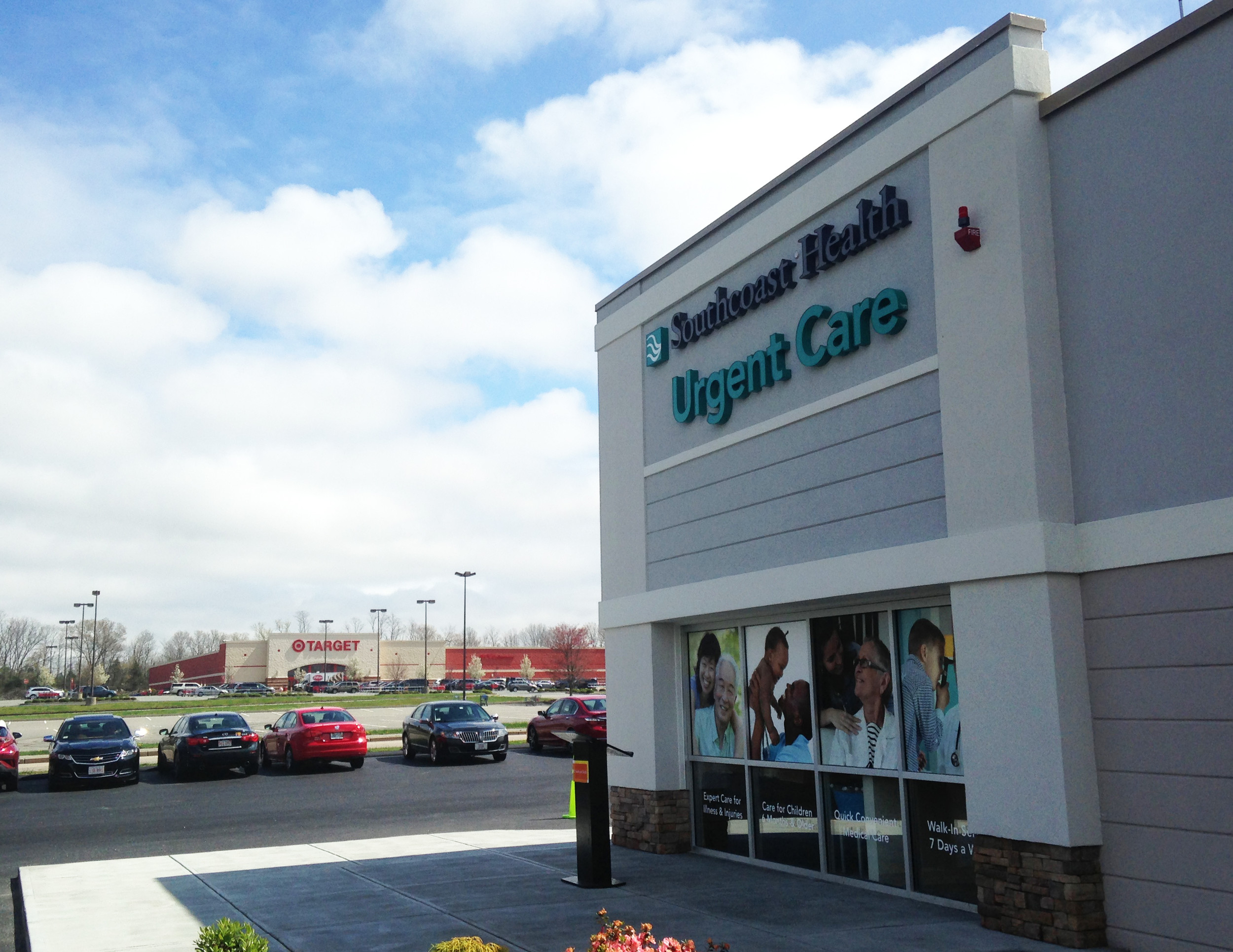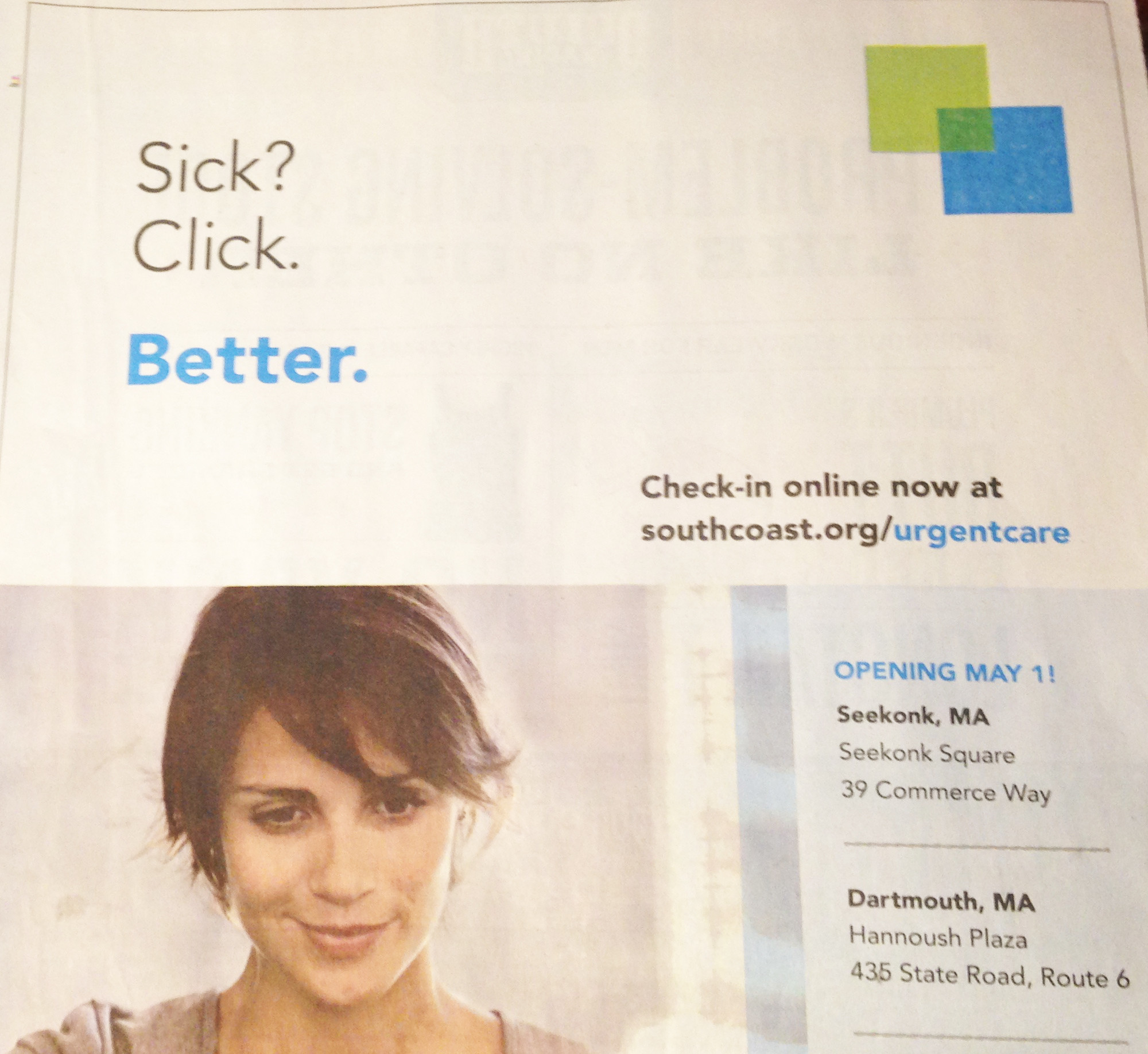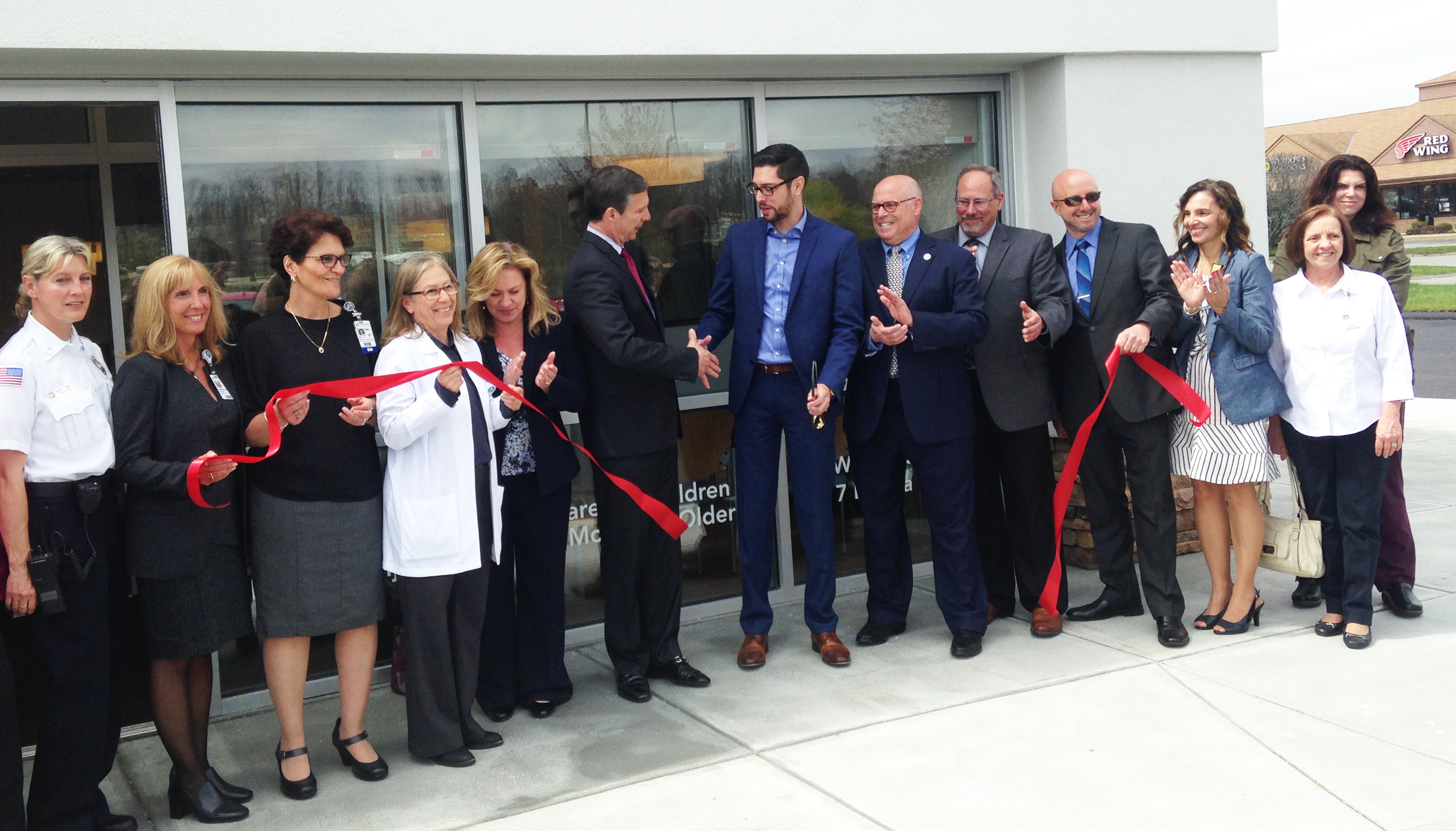Urgent, on demand health care
The battle between health systems to capture greater market share is now being fought in the shopping plazas of big box stores
ConvergenceRI pointed out the heron to the photographer, who asked: How can you tell that it is not a seagull? The wingspan, ConvergenceRI replied, and the way the heron’s feet extend backward.
As consumers, we are often oblivious to connections to our fragile environment, as we make our choices and search for bargain and discounts at the big box stores. We fall into convenient patterns of consumer behaviors and shopping experiences – and health care.
SEEKONK, Mass. – Call it the newest skirmish line in the health care wars, being fought amidst the big box stores: on April 27, Southcoast Health cut the ribbon at its urgent care center in the shopping center plaza at 39 Commerce Way.
It is the latest chessboard move in the battle between health systems competing for customers and market share – and for financial survival in a world where the old business model for hospitals no longer works and operating margins keep narrowing.
The 4,800-square-foot Seekonk location follows the opening of urgent care centers in the last year by Southcoast in Dartmouth, Fairhaven and Wareham, Mass., catering to the need for immediate, non-emergency care.
The watchword of Southcoast’s urgent care centers is convenience, with a coordinated, online presence, according to Keith A. Hovan, president and CEO of Southcoast Health. The urgent care center in Seekonk will be open seven days a week, and patients can go online to schedule an appointment, and check the waiting times.
“The idea of opening up urgent care centers for us is really about listening to our patients,” Hovan said at the ribbon-cutting ceremony, spinning the strategy behind the urgent care centers as a response to what the patients wanted.
“Our patients kept telling us that they want convenient access: they want care when they want it; they want care where they want it; and they want it delivered in the way they want it – they want it friendly, they want it convenient, and they want it lower cost,” Hovan said.
Left unsaid, it is also an economic imperative in a health care service delivery world where population health management and a continuum of care emerges as the best way to leverage the future reimbursement revenue stream.
As Dr. Pamela Spatz, the urgent care medical director at Southcoast, explained in her remarks, the urgent care centers are connected to all the facilities and services of the entire Southcoast health system, with a focus on continuity of care.
“If you don’t already have a primary care [physician], we can [provide] a referral,” Spatz said. “If your problem requires a specialist, we will make sure that we schedule a follow-up with one of the specialists in our wonderful and extensive network. The connection between urgent care, primary care and specialty medicine is an essential feature of the high-quality care that we provide.”
The big picture
As the musical chairs in the ongoing wave of consolidation of health systems plays out in Rhode Island and Massachusetts at the macro level, with Care New England recently signing a letter of intent to merge with Partners Healthcare, the front line of the battle on the ground is taking place in shopping centers across the region.
Southcoast had been engaged on multiple fronts in the musical chairs of hospital consolidation, trying to find a partner to marry. Southcoast had most recently sought a partnership with Care New England, but the effort broke down in 2016, following a year of talks. The health system headquartered in New Bedford, Mass., had previously explored a marriage with South County Health in Wakefield, R.I., but talks broke off in 2014. [See link to ConvergenceRI story below.]
In turn, in Massachusetts, Southcoast has been also engaged in frequent turf conflicts with its Boston-based competitor, Steward Health Care, over market share in Southeastern Massachusetts, as evidenced by the contentious legal battle over Southcoast’s efforts to open a cardiac lab at St. Anne’s Hospital in Fall River, Mass.
A lab for new business models
One instructive way to look at Southcoast’s new urgent care center in Seekonk is to understand that shopping centers with their big box stores often serve as the testing ground and economic laboratory for business ventures. As technology and business models change and evolve, many stores go out of business and are then replaced by new ventures.
The building that houses the new urgent care had once been the home of a now-defunct, high-end stereo store called Tweeter. It is one parking lot down from Target [which was originally a Lechmere store]. It is across the street from Showcase Cinemas [the former site of a Somerville Lumber store], and downwind from a Taco Bell with its busy drive-thru line.
Hovan alluded to the history of the building in his remarks before some 50 people attending the ribbon-cutting ceremony, mostly Southcoast employees. “We actually acquired the lease on this particular property in advance of any of our other urgent care centers. It’s come a long way since you were able to pull cars into the back of the building and install stereos,” he said.
Now, instead of car stereo systems, consumers can find health care delivery at the new urgent care center, according to Hovan. “Now, we’ll be taking really good care of patients living in the greater Seekonk area,” he said.
Or, as the full-page color ad published in The Providence Journal on April 27 proclaimed: “Sick? Click. Better.” Potential patients were directed to check in online at southcoast.org/urgentcare. The ad featured a photograph of a smiling woman in front of a laptop, no doubt representative of the target audience.
“We have found that between 25 and 30 percent of our patients [at urgent care centers] are going online and scheduling their visits,” Hovan said. “And we’re getting those patients into a room within five minutes of their arrival at our centers. It’s great stuff.”
One feature of the online connection is “Save My Spot,” enabling potential customers to get on line electronically to schedule an appointment, much like reserving seating at a restaurant.
Fast, convenient and cheaper
After the ribbon-cutting ceremony, ConvergenceRI, the only member of the news media in attendance, got a chance to talk briefly with Hovan. Here is the interview.
ConvergenceRI: Seekonk seems like fertile ground for you moving forward.
HOVAN: This is part of the marketplace that we serve. We have patients that identify Southcoast as their primary source of care. Our obligation is to bring care to where people live, to make care easier to access, to make care more convenient, and to make it cheaper. So this is really a down payment in that regard.
ConvergenceRI: Is this part of your strategy to move out into the community?
HOVAN: It’s part of our strategy to be responsive to consumers. We are listening to what health consumers say: they want it fast, they want it convenient, they want it high quality.
Urgent care is a way to deliver on that. You can sort of think about it as on demand primary care, [treating] a little bit more than what you might go to your primary care office for – but without having to queue up at an [Emergency Department], without having large co-pays.
ConvergenceRI: Looking at all the big box stores, is the concept similar to just-in-time inventory?
HOVAN: Absolutely. It’s on-demand care.
ConvergenceRI: Are there any more urgent care center locations that you are considering opening?
HOVAN: As the year progresses, and as we move into next year, absolutely.








